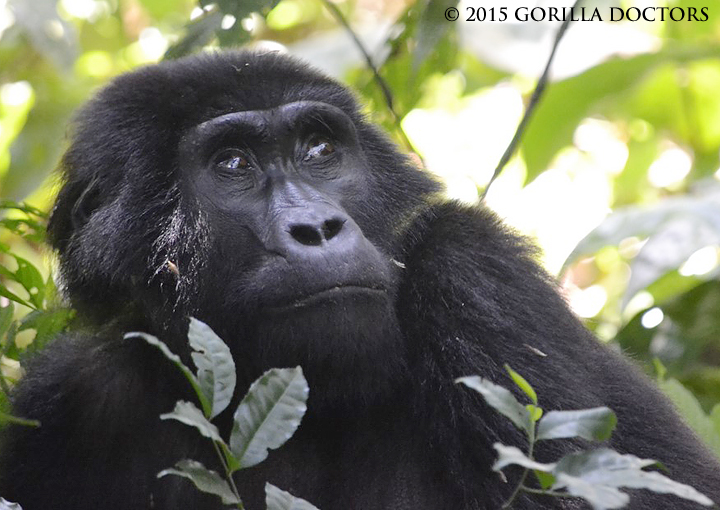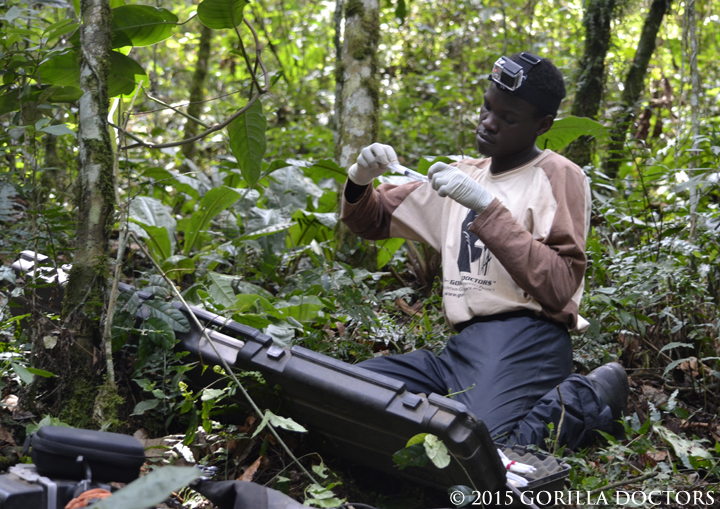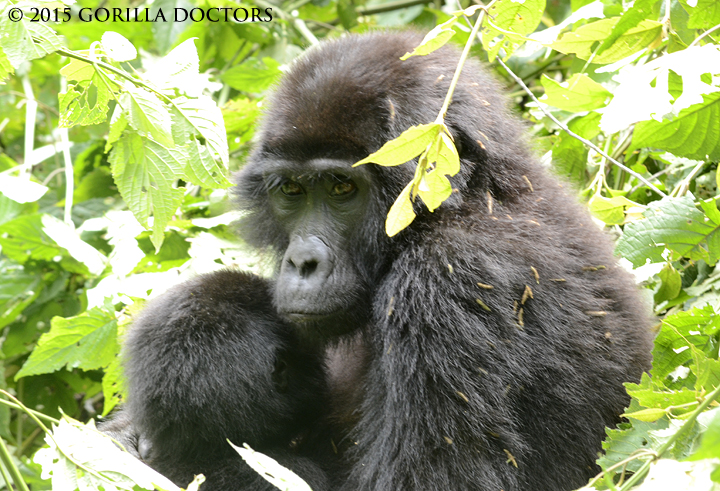Emaciated Mother Gorilla Treated for Parasite Infection in Bwindi
By Gorilla Doctors Staff on Tuesday, October 6th, 2015 in Blog.Drs. Ricky and Fred have been closely monitoring Elsa, an 11-year-old female mountain gorilla in Bwindi’s Habinyanja group, who is weak and emaciated and struggling to keep up with the group. Uganda Wildlife Authority trackers first reported Elsa to be sick and trailing the group on August 24th. Our Uganda Field Vets have since conducted four veterinary assessments to monitor Elsa’s condition.
The group was feeding on Ficus fruit in the trees during Dr. Ricky’s fifth veterinary assessment on September 22nd. Elsa and her 2-year-old infant stayed on the ground, eating fruit remnants discarded by other gorillas. Habinyanja group had traveled over 2.5 kilometers from their night nests by the time Dr. Ricky and UWA rangers arrived to the group. During the 4-hour assessment, the group traveled an additional 2.6 kilometers through the forest. Though Elsa was not carrying her infant during travel, Dr. Ricky reported that the baby was healthy, feeding, playing, and moving along with the silverback.
“I did a direct smear and fecal flotation test on the collected sample in our facility in Buhoma” said Dr. Ricky. “The result showed 3 different worms… astrogyles, strogyloide-like eggs and anoplocephala eggs.”
In addition to the heavy parasite load, there are various other conditions that could be contributing to her emaciation said Dr. Ricky, such as mineral deficiency, metabolic disorders, neuromuscular disease or diseases affecting the central nervous system.
On September 26, Elsa was darted with deworming medication in a partial intervention. Dr. Ricky, along with Uganda Wildlife Authority trackers Otekat, Nyakana and Medad, trekked to Habinyanja group early in the morning and found the group members still lingering near their night nests. Dr. Ricky observed Elsa for an hour before the intervention, noting that her condition had not changed much. Though her physical appearance was poor, she was still feeding, moving with her group, and breastfeeding her infant.
Dr. Ricky prepared two darts of Praziquantel and Ivermectin to treat Elsa’s heavy intestinal parasite infestation. Silverback Makara became aggressive and was guarding Elsa closely after the first dart was fired, so Dr. Ricky was unable to dart Elsa with the second medication. A second remote darting was done on October 1st however by Dr. Fred, after allowing the group time to settle from the first intervention.
For now, Elsa and her infant are hanging in there, but our vets and UWA rangers are watching her closely for any signs that her condition is deteriorating. More soon.


 Donate
Donate



